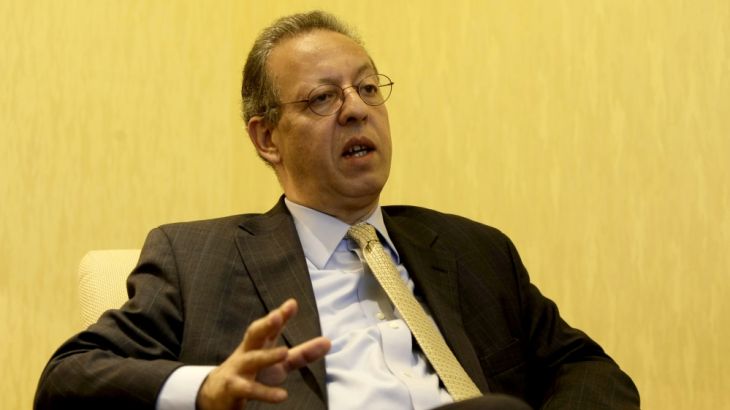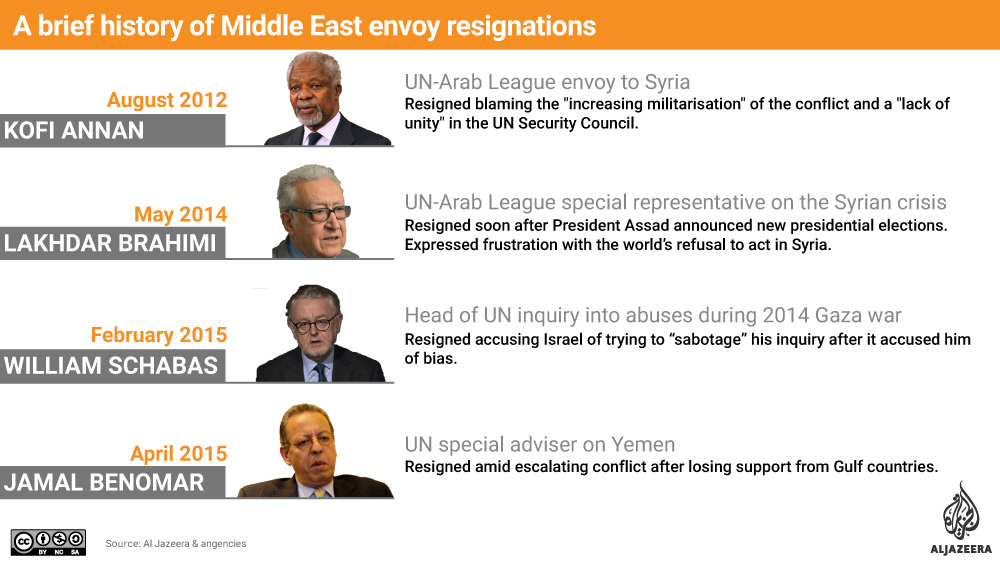UN Yemen envoy Jamal Benomar resigns amid crisis
Diplomatic sources tell Al Jazeera that Ismael Ould Cheikh Ahmed of Mauritania will replace the Moroccan envoy.

Jamal Benomar, the UN special adviser on Yemen, has resigned after four years of efforts at a peaceful political transition fell apart amid the Houthi uprising and Saudi-led air strikes.
A UN statement on Thursday said Jamal Benomar “has expressed an interest in moving on to another assignment” and that his successor will be named “in due course”.
Keep reading
list of 4 items‘Mama we’re dying’: Only able to hear her kids in Gaza in their final days
Europe pledges to boost aid to Sudan on unwelcome war anniversary
Birth, death, escape: Three women’s struggle through Sudan’s war
The Moroccan diplomat also posted the statement on social media, including his Facebook page .
In the statement, UN Secretary General Ban Ki-moon said he “appreciates the tireless efforts Mr Benomar has made over the years to promote consensus and trust on a peaceful way forward in Yemen”.
“Unfortunately, this process was interrupted with the dramatic escalation of violence.”
RELATED: Iran vows to end Saudi-led air strikes on Yemen rebels
Benomar’s departure creates a diplomatic vacuum in Yemen, where he had been the key international figure working to bring the feuding parties together, even after diplomats fled embassies and the UN staff pulled out.
Benomar, who previously served as an envoy in Iraq and Afghanistan, had come under criticism from some in the Middle East, particularly Saudi Arabia, as his recent efforts to broker peace showed little success.
UN spokesman Stephane Dujarric Dujarric said Thursday he could not say whether Benomar would get another UN job.
|
|
He would also not comment on reports that the head of the UN’s Ebola emergency response mission in West Africa, Ismael Ould Cheikh Ahmed of Mauritania, would replace Benomar.
But Al Jazeera has learned from diplomatic sources that Ahmed will replace Benomar. His appointment has to be endorsed by the UN Security Council.
Benomar’s resignation comes as the war in Yemen intensifies, with the Saudi-led coalition continuing its air campaign against Houthi rebels.
Houthi fighters swept into the capital in September and have since tried to expand their control across Yemen, which is also battling al-Qaeda’s local branch, al-Qaeda in the Arabian Peninsula (AQAP).
The Houthis put President Abd-Rabbu Mansour Hadi under house arrest in February, demanding he carry out political reforms. He has since fled to Saudi.
The UN Office for the Coordination of Humanitarian Affairs said this week that estimates show more than 121,000 people have been displaced inside Yemen since a Saudi-led coalition air strike campaign began on March 26.
